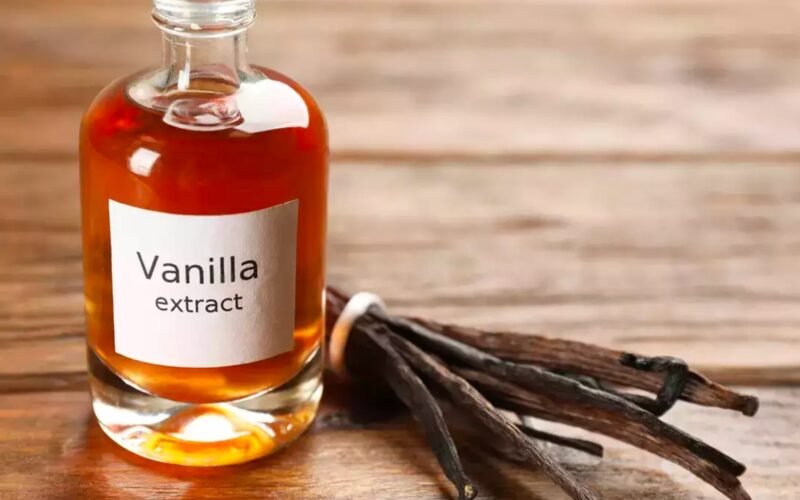The question of whether vanilla extract is halal (permitted) or haram (prohibited) is being questioned by many Muslims.
Different scholars gave different opinions regarding the haram and Halal status of Vanilla extract. This article examines the perspective of Islamic scholars and examines the evidence that reveals the halal status of vanilla extract.
Is Vanilla Extract Halal or Haram?
Vanilla Extract is Halal.
Evidence
- Transformation (istihala): Some ulema claim that the alcohol used for extraction is completely transformed (istihala) when baked or boiled. It is believed that this conversion is intended to remove the haram element from the final product.
- Negligible amount: Ulemas stress that the amount of alcohol used in vanilla extract is minimal and poses no risk of addiction.
- Not intended to be intoxicating: Vanilla extract is used for flavor and aroma only and is not intended to be intoxicating, which is why some Islamic scholars argue it is acceptable.
Counter Argument
Some scholars are more cautious and recommend avoiding vanilla extract because it contains alcohol, regardless of its amount or changes that occur during processing. Considering the Islamic dietary laws they believe that the prohibition of alcohol should be strictly followed by every muslim.
The Quran and Hadith do not specifically mention vanilla extract. However, scholars make the following arguments based on general Islamic principles.
Prohibition of Alcohol: Islamic teachings explicitly forbid the consumption of substances that cause intoxication. However, ulema disagree about the applicability of this ban to alcohol in non-intoxicating amounts or to the use of alcohol as an ingredient.
Istihara Principle: The concept of Istihara (transformation) in Islamic jurisprudence considers any substance that is completely transformed to be permissible. Ulemas who consider vanilla extract to be halal are based on this principle, claiming that the alcohol evaporates during cooking and the final product is alcohol-free.
Halal certification and organization: Halal certification bodies play an important role in advising Muslims. Scholars may disagree, but these certifications provide reassurance to consumers looking for halal products. Some well-known halal certification bodies such as IFANCA and HFCE consider vanilla extract halal by evaluating the conversion of alcohol during the extraction process.
Is It Safe For Muslim to Eat It?
Halal status of vanilla extract remained a matter of debate among Muslims. Some scholars consider it acceptable because of the transformation principle and negligible amounts of alcohol, while others take a cautious approach and advise avoiding it. However as per the evidences ans proves vanilla extract is safe for muslims to consume
Bottom Line
Muslims should strive to make informed decisions based on their understanding of Islamic teachings, personal values, and the guidance of knowledgeable scholars and relevant Islamic bodies.
It is important for individuals to consult a qualified ulema or a reputable halal certification body for specific decisions and guidance in their particular situation
Got a question? Feel free to ask mufti and get quick answers.
MORE:


 WhatsApp Channel
WhatsApp Channel
 Instagram
Instagram
 Facebook
Facebook
 X (Twitter)
X (Twitter)
 Google News
Google News